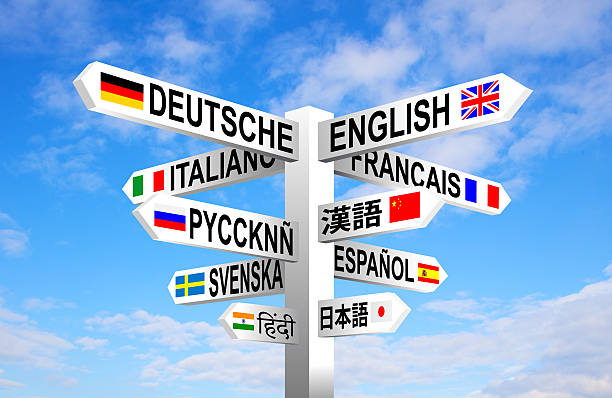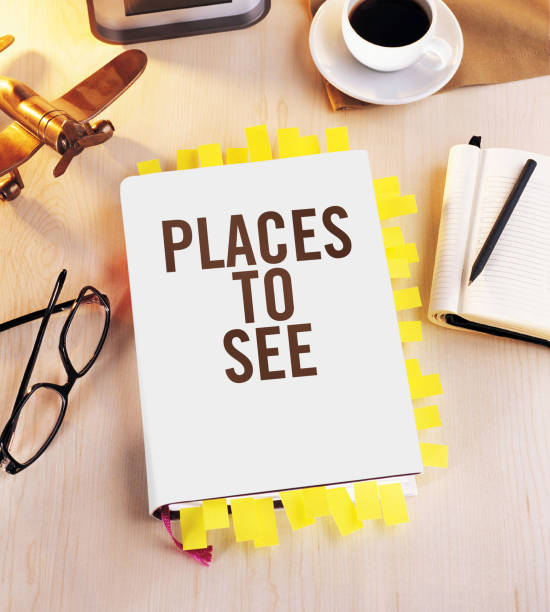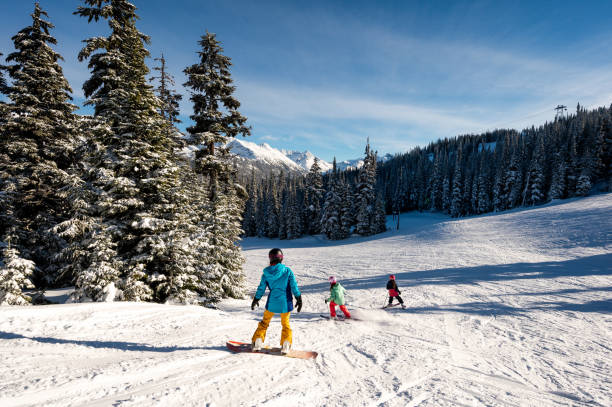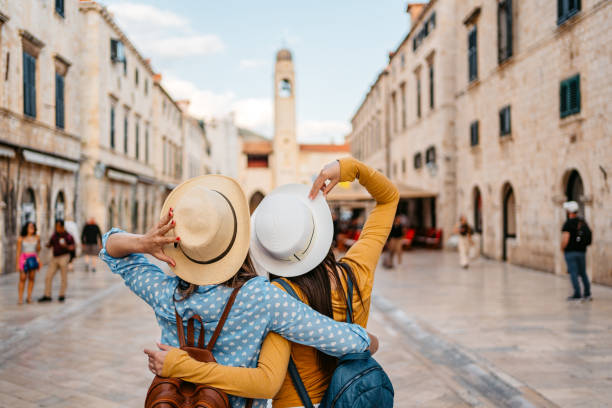Traveling to a foreign country can be an exciting adventure, but one of the biggest challenges for many travelers is overcoming the language barrier. Whether you’re exploring a bustling city, hiking through remote villages, or navigating local markets, knowing a few essential phrases in the local language can make a world of difference. Not only does it help you communicate more effectively, but it also shows respect for the culture you’re visiting. Here’s a helpful guide to essential phrases every traveler should know, plus tips on how to learn and use them, including language apps and translation tools.
Why Learning Basic Phrases Matters
While English is widely spoken around the world, not everyone speaks it fluently. In many places, knowing even a few key phrases can enhance your travel experience. It can help you:
- Navigate daily situations: Ordering food, asking for directions, and shopping are all easier with a few basic phrases.
- Build rapport with locals: Learning how to greet people or express gratitude can create goodwill and open doors to deeper cultural exchanges.
- Avoid misunderstandings: Using the local language can help you avoid the stress of relying entirely on non-verbal cues or translation apps.
Essential Phrases for Every Traveler
Here are some essential phrases in various categories to help you get started. You don’t need to be fluent to make an impact—just knowing the basics can go a long way!
1. Greetings and Politeness
- Hello / Good morning / Good evening
- Bonjour (French), Hola (Spanish), Ciao (Italian), Hallo (German), Konnichiwa (Japanese)
- Goodbye
- Au revoir (French), Adiós (Spanish), Arrivederci (Italian), Auf Wiedersehen (German), Sayonara (Japanese)
- Please
- S’il vous plaît (French), Por favor (Spanish), Per favore (Italian), Bitte (German), Onegaishimasu (Japanese)
- Thank you
- Merci (French), Gracias (Spanish), Grazie (Italian), Danke (German), Arigatou (Japanese)
- Excuse me / Sorry
- Excusez-moi (French), Perdón (Spanish), Scusa (Italian), Entschuldigung (German), Sumimasen (Japanese)
2. Asking for Directions
- Where is…?
- Où est…? (French), ¿Dónde está…? (Spanish), Dove si trova…? (Italian), Wo ist…? (German), … wa doko desu ka? (Japanese)
- How do I get to…?
- Comment aller à…? (French), ¿Cómo llego a…? (Spanish), Come arrivo a…? (Italian), Wie komme ich zu…? (German), … e ikura desu ka? (Japanese)
- Is it far?
- Est-ce loin? (French), ¿Está lejos? (Spanish), È lontano? (Italian), Ist es weit? (German), Tōi desu ka? (Japanese)
- Left / Right
- Gauche / Droite (French), Izquierda / Derecha (Spanish), Sinistra / Destra (Italian), Links / Rechts (German), Hidari / Migi (Japanese)
3. Dining Out
- Menu
- Menu (French, Spanish, Italian, German), Menyu (Russian)
- I’m hungry
- J’ai faim (French), Tengo hambre (Spanish), Ho fame (Italian), Ich habe Hunger (German), Onaka ga suita (Japanese)
- Water
- Eau (French), Agua (Spanish), Acqua (Italian), Wasser (German), Mizu (Japanese)
- How much is this?
- Combien ça coûte? (French), ¿Cuánto cuesta esto? (Spanish), Quanto costa questo? (Italian), Wie viel kostet das? (German), Kore wa ikura desu ka? (Japanese)
4. Emergencies
- Help!
- Au secours! (French), ¡Ayuda! (Spanish), Aiuto! (Italian), Hilfe! (German), Tasukete! (Japanese)
- I need a doctor
- J’ai besoin d’un médecin (French), Necesito un médico (Spanish), Ho bisogno di un medico (Italian), Ich brauche einen Arzt (German), Isha ga hitsuyou desu (Japanese)
- Call the police!
- Appelez la police! (French), ¡Llame a la policía! (Spanish), Chiama la polizia! (Italian), Rufen Sie die Polizei! (German), Keisatsu wo yonde! (Japanese)
5. Basic Travel Vocabulary
- Hotel
- Hôtel (French), Hotel (Spanish), Albergo (Italian), Hotel (German), Hoteru (Japanese)
- Airport
- Aéroport (French), Aeropuerto (Spanish), Aeroporto (Italian), Flughafen (German), Kūkō (Japanese)
- Ticket
- Billet (French), Boleto (Spanish), Biglietto (Italian), Ticket (German), Kippu (Japanese)
Language Learning Tools and Tips
Now that you know some key phrases, it’s time to prepare for your trip by honing your language skills. Here are some useful language learning tools and tips to make communication smoother:
1. Language Apps
These apps are perfect for learning new words, phrases, and even pronunciation:
- Duolingo: A fun and free app that teaches a wide variety of languages through lessons and games. It’s ideal for beginners and can help you build a solid foundation.
- Babbel: Similar to Duolingo but offers more structure and a focus on conversational skills. It’s a great tool for travelers looking to engage in real-life conversations.
- Memrise: Known for its focus on learning vocabulary, Memrise uses spaced repetition to help you remember phrases and words. It also features native speaker audio to perfect your pronunciation.
- Busuu: Offers interactive lessons that cover practical situations (like ordering at a restaurant or asking for directions), which is especially useful for travelers.
2. Translation Tools
For real-time communication or when you’re in a pinch, translation apps can be life-savers:
- Google Translate: A must-have tool for any traveler. It translates over 100 languages and even works offline if you download the language packs in advance. The camera function is especially useful for translating text like menus or signs.
- iTranslate: Offers voice translations and supports more than 100 languages. The offline mode is perfect for when you’re in an area without reliable internet access.
- Microsoft Translator: A powerful app that also supports real-time conversation translation, making it ideal for direct communication with non-English speakers.
3. Practice with Locals
The best way to improve your language skills is by practicing with native speakers. Here’s how:
- Language exchange apps: Platforms like Tandem or HelloTalk connect you with native speakers of the language you’re learning. You can chat via text, voice, or even video.
- Meetups and tours: Join language meetups or book local tours where you’ll be immersed in the language. Talking to locals is an invaluable experience to improve your pronunciation and comprehension.
- Phrasebooks: Carry a small phrasebook or print out essential phrases. Even if you don’t know the language perfectly, locals will appreciate your effort to speak their language.
Final Tips for Mastering Basic Phrases
- Practice Pronunciation: The way you say something is just as important as the words you use. Listen to native speakers and mimic their accent and tone.
- Start with the Basics: Focus on phrases that will help you get around, like greetings, questions, and directions. Once you’re comfortable with these, you can branch out into more complex sentences.
- Be Patient and Confident: It’s okay if you make mistakes—what matters is that you’re trying! Most people will appreciate your effort and be more than willing to help.
Knowing a few key phrases in the local language can significantly improve your travel experience, making interactions more enjoyable and less stressful. Whether you’re navigating the streets of Paris, bargaining in a Moroccan souk, or asking for directions in Tokyo, a little effort goes a long way. Use apps, translation tools, and practice with locals to boost your confidence and enjoy the beauty of cross-cultural communication. Happy travels!





